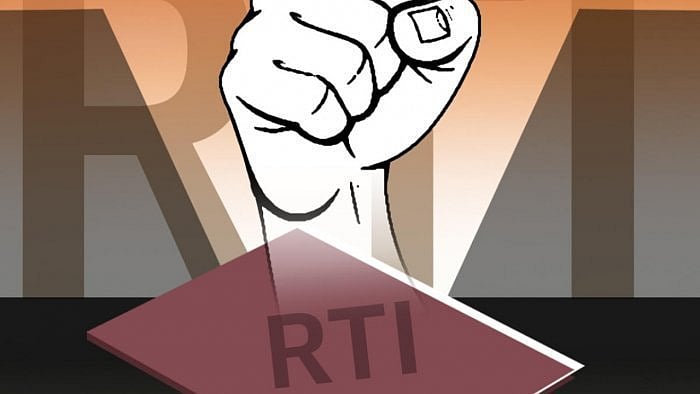
Activists, who depend on the Right to Information (RTI) Act to unearth information on corruption, have expressed concern over information commissioners dismissing appeals en masse without looking into the merits of the case while the departments continue to violate the Act by denying information, including the ‘self-disclosure’ clause (section 4) that can reduce the RTI applications by half.
RTI applicants file second appeals before the Karnataka Information Commission when the departments fail to give information for the application and first appeal.
Over the last few months, the commissioners have dismissed multiple appeals by several activists.
In the latest instance, Commissioner Ravindra Gurunath Dhakappa has rejected 66 appeals by one Davalsab Miyannavar from Dharwad in one go.
The order slammed Miyannavar for filing over 5,500 appeals and flooding the institutions, wasting the time of the officials.
Further, the order said there was no record or any indication that the appellant was trying to bring transparency. “He has not demonstrated any capability or experience in analysing and utilising such vast information from diverse government departments to bring out transparency in functioning or demonstrate wrongdoing, if any, by the government officers,” the order said, adding that “enormous amount of government resources like officers’ time” were wasted by such applications.
Veeresh B H from Mahiti Hakku Adhyana Kendra said the order stifles the spirit of the RTI and emboldens corrupt officials.
“The commissioner has the power to dismiss an appeal but passing a judgement on the appellant is uncalled for. First, he should have asked why so many appeals are reaching the commission. It’s because officials are denying information. No government department is following the RTI Act and disclosing information on its website. If they do, then over half the RTI applications need not be filed,” he said, adding that his own appeals have been pending for more than five
years.
Miyannavar said he was surprised by the commissioner’s decision that he was incapable of analysing the information even before giving access to the information.
“These are appeals filed since 2018. The commissioner has not even seen me. But has judged that I am incapable of understanding and says that I am trying to intimidate the officials. No official complained against me during the hearing. If there is a complaint, let there be an inquiry. I’m ready for it,” he said.
To a question, Dhakappa said he had listened to both parties in detail before arriving at the decision.
“What Davalsab said during the hearing was a reflection of his capability. I’m not blindly passing judgement. There are people who are inundating the system with appeals. There are appellants, like Mujibur Rahman, who have not got their pension for 12 years after retirement. As a commissioner, I can see that rightful appeals are being delayed because some people are inundating the system with hundreds of appeals by claiming corruption in a department,” he said.
The commissioner also said that Miyannavar’s appeals should have been dismissed on the technical ground that they were composite appeals. “Section 19 of the RTI Act allows for appeal. Section 18 allows him to complain against officials. The Central Information Commission, Delhi High Court and Supreme Court have said that appeals can be made under one of the sections and not both,” he said.
However, Dhakappa agreed that the government departments were not providing information to many of the RTI applications and not following the rules laid down under Section 4 of the Act, where all details of the organisations, including the manner of execution of programmes, relevant facts related to policies and decisions that affect the public need to be disclosed suo motu.
“I have communicated this to the heads of the departments and the chief secretary. Also, once information is given under RTI, the same can be disclosed to the larger public to avoid duplication of applications,” he added.
